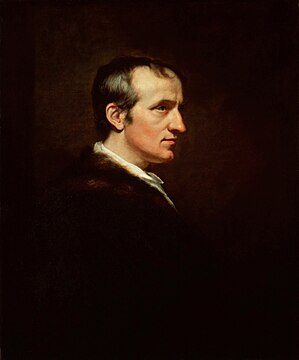Portal:Anarchism
Selected Anarchism-related content Anarchism is a political philosophy and movement that is against all forms of authority and seeks to abolish the institutions it claims maintain unnecessary coercion and hierarchy, typically including the state and capitalism. Anarchism advocates for the replacement of the state with stateless societies and voluntary free associations. A historically left-wing movement, anarchism is usually described as the libertarian wing of the socialist movement (libertarian socialism). Although traces of anarchist ideas are found all throughout history, modern anarchism emerged from the Enlightenment. During the latter half of the 19th and the first decades of the 20th century, the anarchist movement flourished in most parts of the world and had a significant role in workers' struggles for emancipation. Various anarchist schools of thought formed during this period. Anarchists have taken part in several revolutions, most notably in the Paris Commune, the Russian Civil War and the Spanish Civil War, whose end marked the end of the classical era of anarchism. In the last decades of the 20th and into the 21st century, the anarchist movement has been resurgent once more, growing in popularity and influence within anti-capitalist, anti-war and anti-globalisation movements. (Full article...)
Selected article
Anarky dialogue by Alan Grant, "Anarky", The Batman Adventures #31, April 1995.
Anarky (Lonnie Machin) is a fictional character in the DC Comics Universe. Co-created by Alan Grant and Norm Breyfogle, he first appeared in Detective Comics #608 (November 1989) as an adversary of Batman. Stories revolving around Anarky often focus on political and philosophical themes. Named after the philosophy of anarchism, the primary philosophical element that has underscored the character's appearances has been anti-statism. With Grant's transition to the philosophy of Neo-Tech, Anarky was transformed from a vehicle for socialist and populist philosophy, to rationalist, atheist, and free market based thought. Highly thematic and philosophical in tone, Alan Grant avoided using the character often, but addressed multiple social issues whenever the character appeared, including environmentalism, antimilitarism, economic exploitation, and political corruption. Inspired by multiple sources, early stories to feature the character often included homages to political and philosophical books, including notable anarchists such as Mikhail Bakunin and Pierre-Joseph Proudhon, among others. The creation of the character was also partially influenced by Alan Moore's character "V" from V for Vendetta. Originally intended to only be used in the debut story in which he appeared, positive reception by readers and his editor convinced Grant to continue using Anarky as a recurring character throughout the early 90s. The character experienced a brief surge in media exposure during the late '90s, beginning when Norm Breyfogle convinced Grant to produce a limited series based on the character. The 1997 spin-off series, Anarky, was received with positive reviews and sales, and later declared by Grant to be among his "career highlights". Batman: Anarky, a trade paperback collection of stories featuring the character, soon followed. This popular acclaim culminated, however, in a financially and critically unsuccessful ongoing solo series. The 1999 Anarky series, in which even Alan Grant has expressed his distaste, was quickly canceled after eight issues. (read more...)Selected image James Northcote, William Godwin, oil on canvas, 1802, the National Portrait Gallery. William Godwin (1756-1836) was one of the first modern proponents of philosophical anarchism Did you know?
Selected quoteAnniversaries for December 22
Relevant listsCategoriesRelated portalsParent portals Socio-political portals Related WikiProjectsParent projects
Economics · Philosophy Socio-political projects Anarchism TopicsThings you can doThank you for your interest in improving the coverage of anarchism on Wikipedia!
Related WikimediaThe following Wikimedia Foundation sister projects provide more on this subject:
Discover Wikipedia using portals |
























